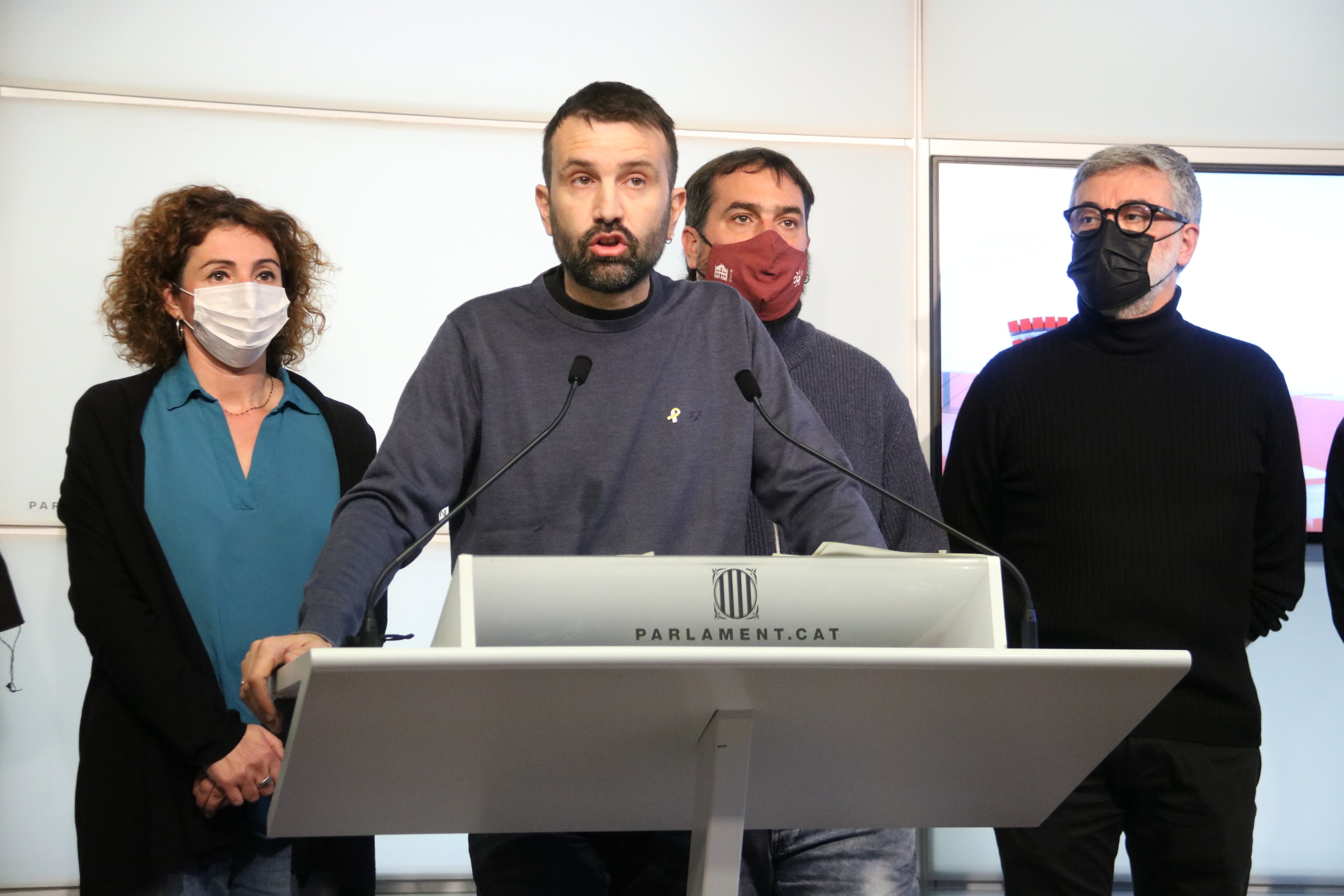Spain's Central Electoral Commission (JEC) is opening a second battle against the Parliament of Catalonia, and in particular aimed at the speaker of the house, Laura Borràs (Junts party). After receiving a request from Spanish right-wing parties Cs, the PP and Vox to strip the CUP deputy and Bureau member, Pau Juvillà, from his seat after he was banned from office for six months by the Catalan High Court, the electoral board has agreed to ask speaker Borràs to inform them within ten days of "the decisions, resolutions or any other measures taken by the institution", and if she wants to present arguments.
Juvillà was banned from public office for six months by the court after being found guilty of disobedience - in fact, it was the JEC itself that he disobeyed - because he did not remove some yellow ribbons from the window of the office that the CUP party had in the Lleida municipal building, during an election campaign in 2019. Juvillà defended that he was exercising his right to freedom of expression.
On December 16th, the parliamentary statute committee, with the votes of Junts, ERC, the CUP, the PSC and the Comuns agreed that Juvillà would be able to maintain his seat until a final sentence was reached in the case, as is stated in the Catalan chamber's regulations. The MP's lawyer has already announced that he will appeal to the Supreme Court. The plenary session of the Parliament on December 17th ratified that it would protect Juvillà.
The Supreme Court's ruling
However, as was the case with former Catalan president Quim Torra, the anti-independence parties Cs and Vox have said they will ask the Central Electoral Commission to immediately urge Parliament to withdraw the seat of the anti-capitalist, pro-independence MP, alleging that a status of "unexpected ineligibility has occurred" which, they consider, is included in Spanish electoral law and which the Supreme Court, in the case of Torra (STS 572/2021), endorsed.
The CUP, on the other hand, has a different interpretation of the same Supreme Court ruling, asserting that Parliament had failed to make use of its own powers to decide to withdraw Torra's seat or not. In fact, the ruling of the court is not completely rigid, validating both the action of the Parliament and that of the JEC.
In today's resolution, the JEC also refers to the Supreme Court ruling, stating that the parliamentary chamber must substantiate the "unexpected ineligibility" of the seat and, since the Cs party also demanded the measure of the Bureau, the JEC has asked speaker and Bureau head Laura Borràs what she has done. The Bureau, which pushed for Juvillà to be supported, now has ten working days to inform the electoral body of the steps taken.
Specifically, the Spanish electoral body states that the Supreme Court in two 2021 decisions in a similar matter (the case of president Torra) “confirmed the criterion used by the JEC in the sense that the causes of ineligibility established in the electoral law are effective and, therefore, constitute an automatic consequence of the penalty imposed by the sentence”. It adds that these 2021 court rulings declared that the presumption of ineligibility is an "extra-criminal" effect of a conviction, a measure necessarily linked by the electoral law to the criminal punishment of disqualification even if the sentence it is not final, and even though Parliament's rules of procedure do not refer to it.
In addition, the JEC details that the Supreme Court declared that the chamber “must substantiate the unexpected ineligibility that has occurred, although it is not its exclusive competence, since in the event of its inactivity or for any other reason, the electoral administration may act in direct application of the law".
Main image: The MP Pau Juvillà, with political colleagues from the CUP party / ACN

